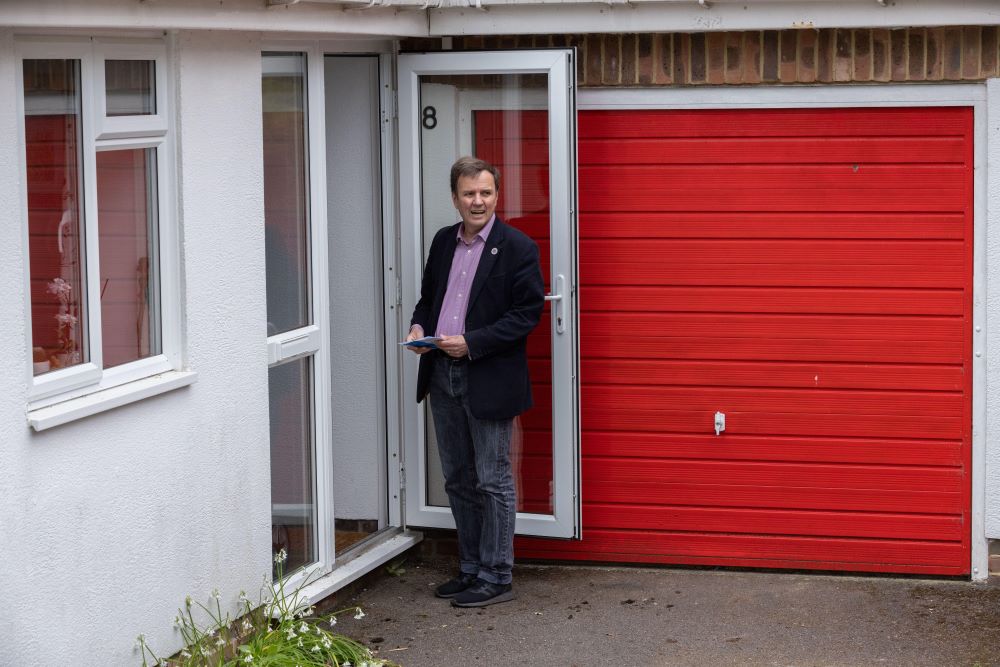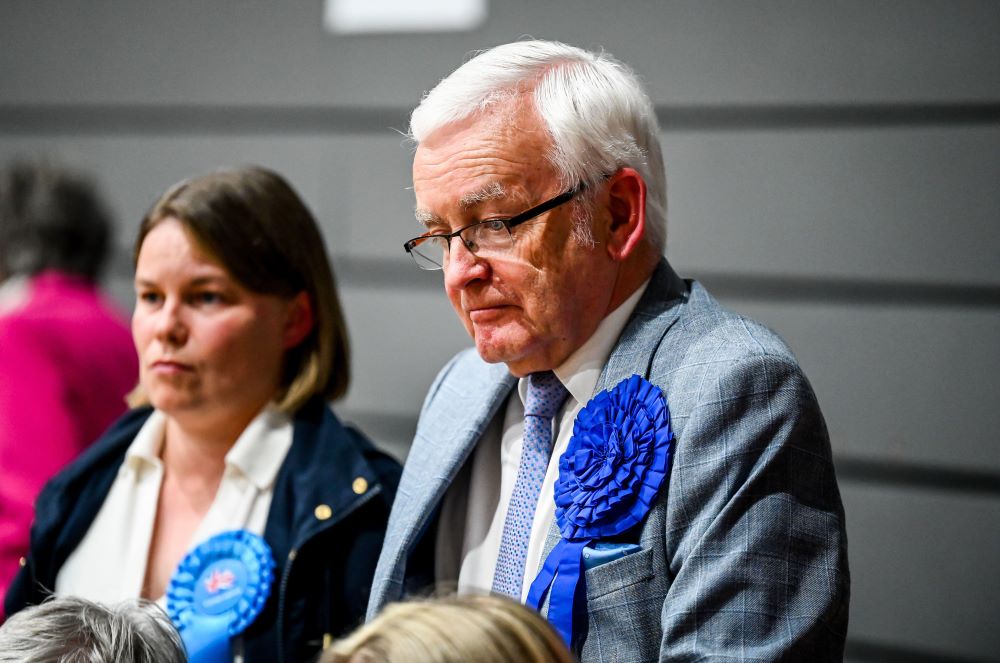"Shy Switchers" Could Be Concealing True Scale Of Possible Tory Defeat At Next Election
Labour leader Keir Starmer at a phone bank (Alamy)
5 min read
Conservative MPs are starting to fear that "shy switchers" – voters who appear sympathetic to their party on the surface, but are likely to turn on them at the ballot box – could produce a general election defeat in 2024 that is even more devastating than many Tories are currently prepared for.
A senior Conservative told PoliticsHome that they worry many people who have voted for the party in recent elections are simply being "polite" and "don’t want to be brutal” when they tell activists they may vote for them again, when in reality they are increasingly likely to switch to Labour or the Liberal Democrats come polling day.
The next general election is due to be called before the end of 2024, with current predictions suggesting an autumn ballot is on the cards.
This undercurrent of superficial support, the senior Tory suspected, was blurring the view of the more optimistic MPs who still believe the party could have a chance of pulling off what is currently regarded as a very unlikely victory.
The term "shy Tories" has historically been used by some commentators to describe a reverse form of the concept, in which people were believed to have voted Conservative at general elections having told pollsters that they wouldn't, but did anyway, leading to unexpected Tory victories.
A Tory adviser told PoliticsHome that Conservative party campaigners believed the "switcher" phenomenon took place at last month's local elections, when the number of people telling them on the doorsteps that the Tories had their vote was not ultimately reflected in the results.
"We saw this particularly in areas that were Tory but elected Lib Dems. One thing was said on the doorstep, and another thing happened at the ballot box,” they explained.
“The PM's recent polling is better than the party's, and I’m afraid to say it has much ground to cover if it is to recover from the toxic damage caused by the idiocy of Liz Truss and the turmoil of the Boris years. The brand has been trashed and it’s sticking in the minds of voters.”

The Labour Party continues to enjoy double-digit leads in the opinion polls, indicating that Keir Starmer is currently on track to be the next Prime Minister. Big Tory losses at the May local elections, which saw the party haemorrhage support both to Labour and the Lib Dems in key electoral battlegrounds across the country, crystallised the uphill struggle facing Prime Minister Rishi Sunak in his bid to avert the first Tory general election defeat since 2005.
There is hope among a number of Conservative MPs that the party will be able claw back enough support between now and the end of 2024 to at least deprive Labour of a parliamentary majority, leading to a hung parliament. A smaller group believe that despite Labour's large leads and the bleak economic backdrop, Sunak will be able to pull off the sort of tight victory in the face of adversity achieved by former Conservative Prime Minister John Major's in 1992.
Campaigning by Labour, which won some councils that had been under Tory control for decades at the local elections, suggests the party is well aware of the "shy switchers".
Shabana Mahmood, Labour's National Campaign Coordinator, recently told PoliticsHome that a "cultural shift" under Starmer's leadership meant that the party was in a stronger position to convince people who are not "natural Labour supporters" to switch to them.
"We're not here to sneer at people or make judgments about what sort of people they are, if they watch Top Gear or not, that’s very much not our approach,” she said. Alastair Campbell, Labour's former Downing Street Director of Communications, reflected in his recent book that Facebook ads excluding anyone who “watched Top Gear, played bingo, didn’t have a degree, or liked Piers Morgan” had proven fatal for the People’s Vote campaign for a second Brexit referendum, which senior Labour figures including Starmer were associated with.
"We are trying to persuade those people to vote for us, so we meet them with humility, we meet them with respect, we talk about the issues that we know matter to them," Mahmood added.

Tim Bale, Professor of Politics at Queen Mary University, said he was not surprised that Tory activists had reported people voting differently to how they said they would last month.
“Voters are quite polite when politicians accost them, generally speaking, and to use the technical term: there is social acceptability bias in people’s answers," he told PoliticsHome.
"They do it when speaking to pollsters face-to-face, and I’m sure they do it even more so when speaking to politicians and campaigners."
He believed it was likely that switchers had played a key part in the Conservative party losing over 1,000 council seats.
"The Conservatives excused what happened that day [8 May] as their voters staying at home, but the beating they took indicates that quite a lot of people must have switched, and some of those will have said something different when canvassed,” he added.
But Rob Ford, Professor of Political Science at the University of Manchester, said it was important to treat claims about the threat of "shy switchers" to the Conservatives with some sceptism.
The reports from last month's local elections are anecdotal, he told PoliticsHome, while people telling MPs and campaigners want they want to hear "to get them off their driveways" is a long-standing political phenomenon, and not unique to last month's votes.
Ford did agree, however, that last month's elections were "unusually" bad for the Tories in a historical context because they lost the most support in the areas where they started strongest, which points to significant levels of people switching to other parties.
"That's called proportional swing, and that doesn't happen often," he explained.
"If this phenomenon sets in, then it's really threatening to the party at a general election. Perhaps part of the reason why they are they looking so intently at this is because they are aware of the fact that places that were rock solid for them are not anymore.
Ford also nodded to a particular kind of British-politeness one might expect from a small-c conservative type in traditional Tory heartlands.
"After all, which kind of people would be most reluctant to say they won't vote Conservatives?" he asked.
"Probably those that have always voted for them in the past."
